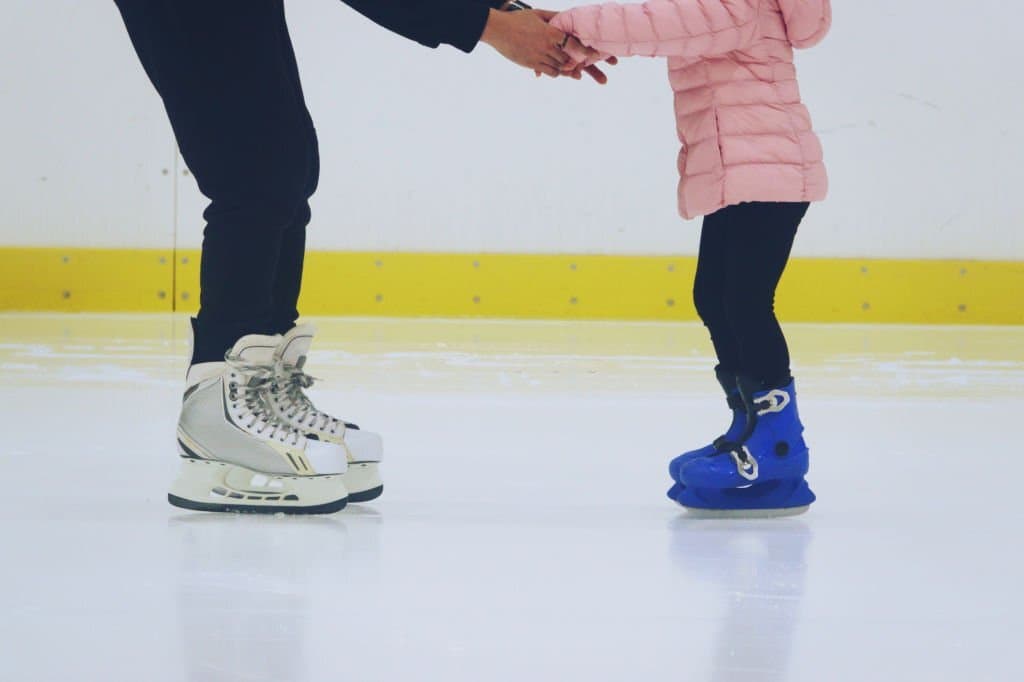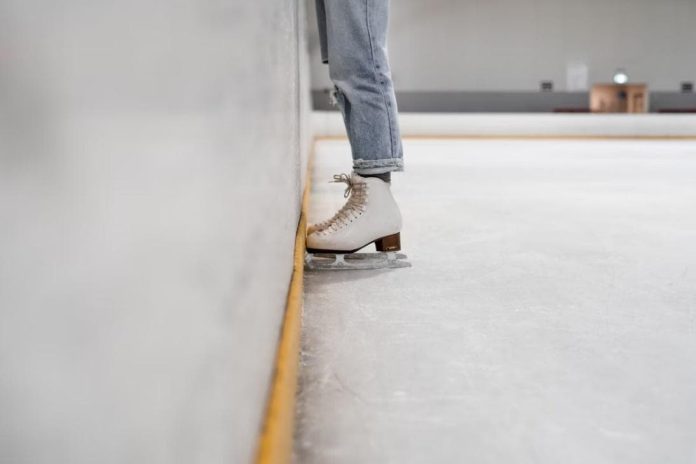Ice skating is probably not the first thing that comes to the mind of most when they’re thinking about sports. However, if you’ve decided to do it, it means something attracted you to it. Maybe it was the excellent aerobic workout it delivers, the improvement it brings to your balance, muscle coordination and flexibility, or simply the general aesthetic sense.
Apart from keeping you in shape and helping improve your health, skating is fun. It’s a somewhat uncommon hobby to have, which means it brings great potential for personal improvement.
You’ll get to meet and interact with different people during sessions, an opportunity to socialise and make new friends. And it can be a great way to relax and unwind after a long and stressful day.
Table of Contents
Get the right skates
The most crucial part is to make sure you get the proper skates on when starting to skate. Whether rented or bought, aim for a perfect fit. If your skates are too tight, they’ll uncomfortably compress your feet, giving you sore toes and heels and blisters or broken toenails.
However, if they’re too large, you have a high probability of injuring your ankles. You’re looking for a snug but comfortable match. You don’t want your feet to go numb while you’re on the ice. It’s vital to secure them properly around the ankles, so you get the correct support.
Start slowly
If your first few steps on the rink were lucky ones and learning the basics was a breeze, you likely feel confident in your skills. But the best thing you can do is give yourself time before trying anything complicated.
If you’re on the opposite end of the spectrum and feel like you’re making no improvement, don’t become discouraged and throw in the towel. It takes time to develop a new skill.
Make sure you don’t skip warm-ups in order to reduce the risk of injury. And if it makes you feel comfortable, stay close to the rail the first few times you skate.
Develop your posture
As with all other sports, having proper posture is the key to making the most of the exercise you’re performing. And you’ve definitely heard all about proper posture being essential for a healthy life.
Skating can definitely help you improve in this area. When you’re just beginning, it’s important that you avoid looking down when skating. It can be tempting to keep a close eye on your movements when you’re a beginner and unsure of yourself, but doing so can actually do more harm than good.
Looking down makes you lose your balance, heightening the risk for injury. Bending your knees is another important tip. When you take this pose, your centre of gravity shifts lower, making you more stable. The position of your arms is also influential. You should have one arm in front of you and the other positioned slightly to the side.
In case of injury
When you begin ice skating, it’s best not to be afraid to take a fall. It happens to all skaters, even professionals. And while a tutor can teach you how to fall in order to minimise the risk of injury, you should keep in mind that it can still happen, and you should be prepared just in case.
Request the assistance of the experts at Accident Claims Advice if you’ve experienced an injury you believe was due to someone else’s negligence. This can include inadequately trained staff, precarious behaviour exhibited by other skaters, poor maintenance of the skating rink or faulty rink supervision. Ice rink owners or administrators have a duty of care, and they can be held liable and compensate you, regardless of the extent of your injury.
The compensation fees can be awarded depending on the body part you injured and the extent of your injuries. It’s difficult to determine the exact amount for sure. A professional needs to assess the individual details of your case in order to be certain, but rough estimates exist, and they can provide you with a general idea of what to expect. For instance:
- A severe arm injury can mean up to £130,930
- Moderate knee injury, implying damage to the muscle, cartilage, or bone, can signify around £26,190
- Taking a few months to completely heal, temporary eye injuries are estimated to fall in the £2,200 – £3,950 range.
- Moderate to severe neck wounds causing pain with movement, stiffness or loss of mobility fall between £7,890 and £38,490
- The claim can also follow mental health problems that appeared as a result of the accident. For example, in the case of PTSD, if you’re struggling with a mild case, where you’ve made a complete recovery in two years at the most, with only minor symptoms persisting longer, you can be compensated with at least £3,950. For a moderate manifestation of the disorder, with non-disabling symptoms remaining, the compensation range begins at £8,180.
Have fun with it

Ice skating should be a fun time, and you shouldn’t be apprehensive about possible injuries or embarrassing yourself in front of more experienced skaters. When you leave your worries at the door, you are also able to focus better. This means you stand a higher chance of falling less and developing your skating skills faster.
You’re not putting up a performance, so don’t take yourself too seriously. While it’s good to set ambitious goals for yourself, aiming too high too soon will only result in putting you off the sport.
If you don’t feel confident about starting off on your own, ask a friend or family member to join you during your first sessions. It can quickly put your mind at ease to see a familiar face supporting you from the side, and who knows, you may even help someone else develop a passion for skating.
After going through all these tips, you should feel ready to get on the ice rink and give skating a shot. Not only is it a great sport to practice by itself, but it can also make you discover an affinity for other ice sports like hockey or curling. You have nothing to lose from giving it a try.


